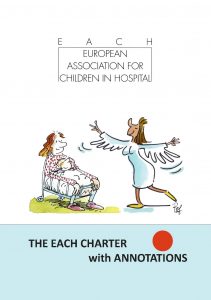
International Stress Awareness Week will take place on 1-5 November 2021. Organised by the International Stress Management Association (ISMA), this week aims to raise awareness about the dangers of stress, the stigmas associated with it, and methods of prevention. This week also features Stress Awareness Day on 3 November, where Rethink Mental Illness will highlight how stress can negatively affect anyone’s mental health and wellbeing and how you can manage your stress before it becomes a problem.
At Children’s Health Scotland, we recognise the stress can affect the health and wellbeing of children and young people. Beth Davidson, Children’s Health and Wellbeing Services Coordinator, said: “Stress can be incredibly detrimental to the wellbeing of children and young people. As part of our Self-Management Service, we emphasise the need to take care of mental and physical health using relaxation techniques and mindfulness. It really helps the children and young people we support to cope with the stress associated with their health conditions and with everyday life.”
What is Stress?
- Stress is the feeling of being under too much mental or emotional pressure. This causes your body to release hormones for a “fight or flight” response.
- Signs of stress include feeling tired, headaches, worrying excessively, forgetfulness, changes to sleeping and eating habits, and many more.
- At some point in the last year, 74% of adults and 83% of young people have felt so stressed that we have felt unable to cope.
How can you cope with stress?
There are many things you can do to cope with stress. The ISMA website and Rethink Mental Illness website both have great advice and tips for how to cope with stress. Firstly, it’s important to acknowledge that you are feeling stressed by checking to see if you have symptoms of stress. Once you know you are experiencing stress, you can take action to reduce your stress levels with some simple and effective changes:
- Talk to someone about how you feel. This could be a chat with someone you trust or it could be with a health professional.
- Keep a stress diary where you write down when you felt stressed and what you think might have caused it.
- Make lifestyle changes, such as getting plenty of sleep, exercise and eating well.
- Learn to relax using mindfulness and breathing technique such as our Butterfly Body Scan below, our Create a Calming Corner activity, or using resources you can find here.
- Do something fun! Find a hobby that you enjoy like listening to music, baking, sports or reading, and do it. Making time for yourself is essential to feeling less stressed. We have created a Stress Awareness page with activities for everyday of the week dedicated to helping you to relax and have fun.
At Children’s Health Scotland, we believe all children and young people across Scotland have the right to the best possible health. We have many stress related resources on our website which you can view here. If you would like to contact us, please email enquiries@childrenshealthscotland.org.
